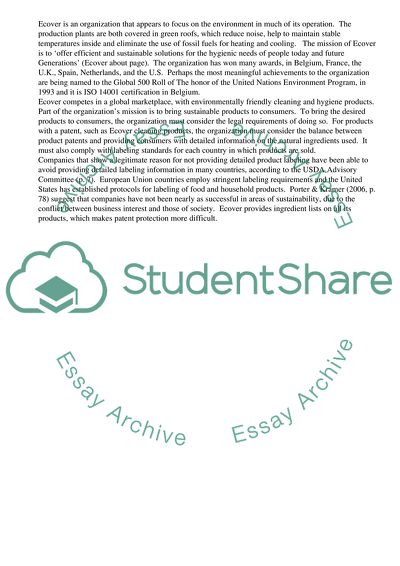Cite this document
(What Helps Ecover to Remain a Sustainable Organization Case Study - 4, n.d.)
What Helps Ecover to Remain a Sustainable Organization Case Study - 4. Retrieved from https://studentshare.org/business/1575977-sustainable-management-futures
What Helps Ecover to Remain a Sustainable Organization Case Study - 4. Retrieved from https://studentshare.org/business/1575977-sustainable-management-futures
(What Helps Ecover to Remain a Sustainable Organization Case Study - 4)
What Helps Ecover to Remain a Sustainable Organization Case Study - 4. https://studentshare.org/business/1575977-sustainable-management-futures.
What Helps Ecover to Remain a Sustainable Organization Case Study - 4. https://studentshare.org/business/1575977-sustainable-management-futures.
“What Helps Ecover to Remain a Sustainable Organization Case Study - 4”, n.d. https://studentshare.org/business/1575977-sustainable-management-futures.


